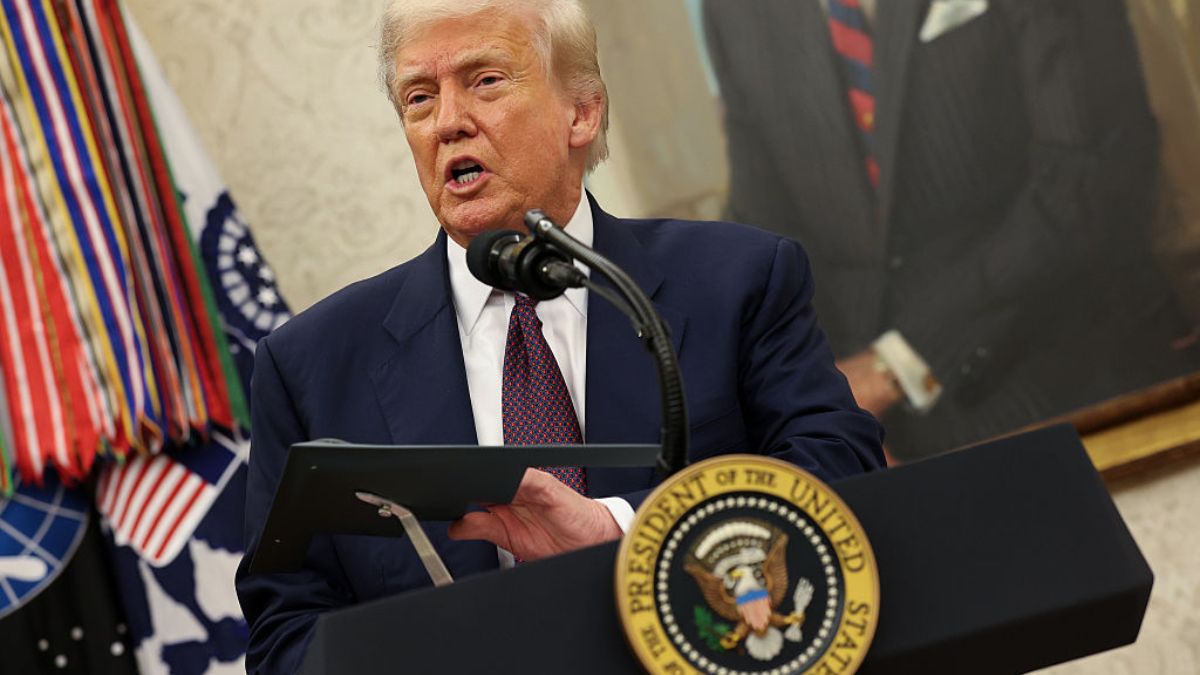
Donald Trump announced that he plans to impose 100 percent tariffs on imported semiconductors worth tens of billions of dollars, while offering exemptions for companies that commit to manufacturing chips in the United States. The announcement came during a White House event where Apple CEO Tim Cook revealed plans to increase the company’s investment in the United States by $100 billion.
According to Politico, the proposed tariffs would affect a significant portion of the semiconductor market, as the United States imported more than $60 billion worth of semiconductors in 2024. The majority of these imports, over $50 billion worth, came from Asian countries including Taiwan, Malaysia, Vietnam, Thailand, South Korea, and Japan. Taiwan alone shipped about $12 billion worth of chips to the U.S. last year, making it the top foreign supplier alongside Malaysia.
During the White House event, Trump stated clearly, “We’ll be putting a tariff of approximately 100 percent on chips and semiconductors.” He explained that companies manufacturing semiconductors in the United States would not face these levies, though it remained unclear whether this exemption would apply to chips those companies import from abroad or only to domestically produced chips. Trump warned that companies claiming to build facilities without following through would face accumulated tariffs at a later date, despite his own mixed track record with business ventures and corporate partnerships.
Major trading partners secure reduced tariff rates as the auto industry warns of cost increases
The European Union has already negotiated a commitment from the Trump administration for a reduced tariff rate of 15 percent on semiconductors as part of a recent trade deal. South Korea and Japan appear to have secured similar arrangements with the administration. China, which exported about $2 billion worth of chips to the United States last year and serves as a significant source of chips for automotive manufacturing, has not announced any special arrangement.
President Trump threatened to impose a 100 percent tariff on foreign semiconductors, exempting companies that make a commitment to invest and build in the United States.
— 𝓢𝓸𝓾𝓵 𝓑𝓵𝓾𝓮𝓼 (@wularter) August 7, 2025
Mr. Trump would double tariffs on imports from India to 50 percent as punishment for purchasing Russian oil. pic.twitter.com/00omEySjWe
The announcement follows an investigation launched on April 1 by Commerce Secretary Howard Lutnick under Section 232 of the 1962 Trade Expansion Act, which allows the president to restrict imports considered a risk to national security. A White House official, speaking anonymously, said the tariffs would be nuanced and phased in to encourage domestic manufacturing while minimizing supply chain disruptions, though additional details would come with the official announcement.
Industry groups have raised concerns about the potential impact of these tariffs on American businesses and consumers, similar to warnings about how tariffs increase costs for American buyers across various sectors.. Autos Drive America, representing foreign brand automakers, warned that a 25 percent tariff on semiconductors and semiconductor manufacturing equipment could increase vehicle production costs by $1,200 to $2,500 per car.
The Semiconductor Industry Association cautioned that untargeted tariffs could backfire by raising the cost of developing technology and manufacturing chips domestically. Taiwan’s government filed comments with the Commerce Department, warning that tariffs would increase production costs for American companies using semiconductors and could reduce the willingness of Taiwanese enterprises to invest in the United States, potentially affecting Taiwan Semiconductor Manufacturing Company’s planned $165 billion investment in Arizona.







